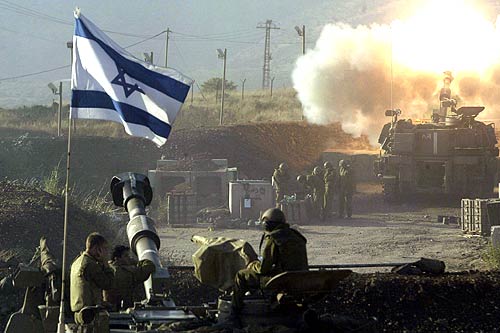 All over the world, tens of thousands have loudly protested against recent Israeli military actions. In one populous and culturally pivotal corner of India, however, reactions have been significantly different – at least amongst a sizeable, vocal minority.
All over the world, tens of thousands have loudly protested against recent Israeli military actions. In one populous and culturally pivotal corner of India, however, reactions have been significantly different – at least amongst a sizeable, vocal minority.
On August 16, nearly 20,000 people rallied in support of Israel in Kolkatta (formerly Calcutta) in the largest demonstration of its kind to date.
Protesters from the Hindu Samhati movement, including Buddhists and Sikhs, carried banners reading “Save Israel from jihadi aggression” and “Stop Hamas, Gaza will be peaceful.”
Protest organiser Tapan Ghosh told the crowd: “The destiny of India and Israel as thriving democracies are intertwined. We share the same values.” He added that both were “surrounded by very tough neighbours” and insisted that Israel had every right to defend itself.
Destinies of India and Israel are interwined
The event’s main purpose was to honour Gopal Chandra Mukherjee, a local activist who defended Hindu people and “saved innocent lives during the Great Calcutta Killing in 1946”, said a Hindu Samhati spokesperson.
Other Indians, not least Muslim citizens, allege that Mukherjee was a zealot who inflamed intercommunal violence as much as quelling it. Mr Ghosh, notwithstanding his praise of democracy, stated: “Secularism in India is nothing but a farce. It is a synonym for Muslim appeasement and is the foundation stone of total destruction of India.”
Mr Ghosh was jailed on disputed charges of fomenting communal discord in 2012. HS campaigns vigorously against alleged infiltration of Bangladeshi Muslims into Hindu-majority West Bengal state and attacks on Hindu communities.
Ranbir Singh, chair of the UK organisation Hindu Human Rights (HHR), said that the Kolkatta protest is typical of a new trend in India, following this year’s election of Narendra Modi as prime minister, of local communities asserting a do-it-yourself, independent attitude. Indeed, India has seen widespread demonstrations in support of Gaza – in New Delhi, Srinagar, Mumbai, Bangalore, Bhopal, by Communists in Chandigarh and even by Hindus in Kolkatta.
Founded in 2000, HHR is loosely affiliated with Hindu Samhati, and sees Hindus and Jews as natural allies. Antisemitism was largely unknown in India, though elements crept into Indian politics when Gandhi and Nehru succumbed to pressure from a “Marxist academic elite” who claimed Zionism was illegitimate, said Mr Singh.
An anti-Israeli demonstrator in his teens, Mr Singh joined the recent ZF sponsored pro-Israel demo in London, alongside Jewish groups such as Harif. He considers Israel “the most successful postcolonial state, a democratic nation that offered safe haven to Vietnamese boat people and black Africans”, yet which is unfairly demonised.





